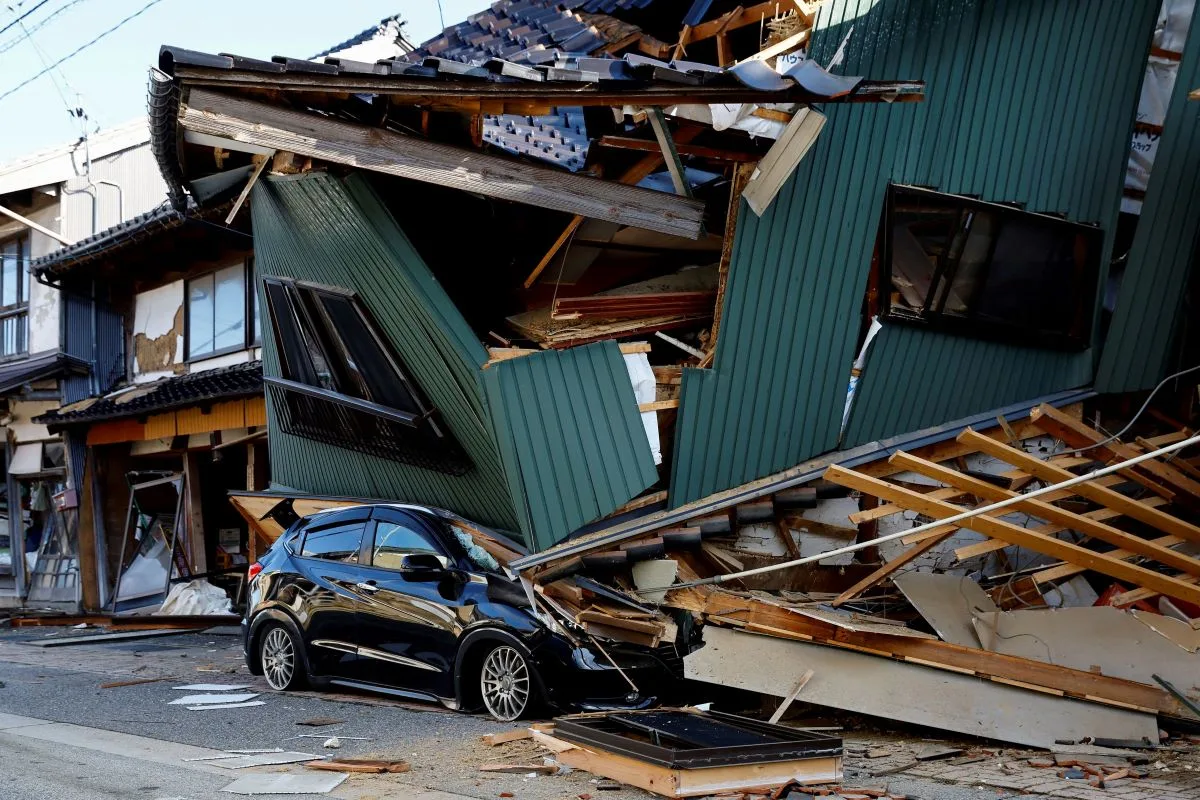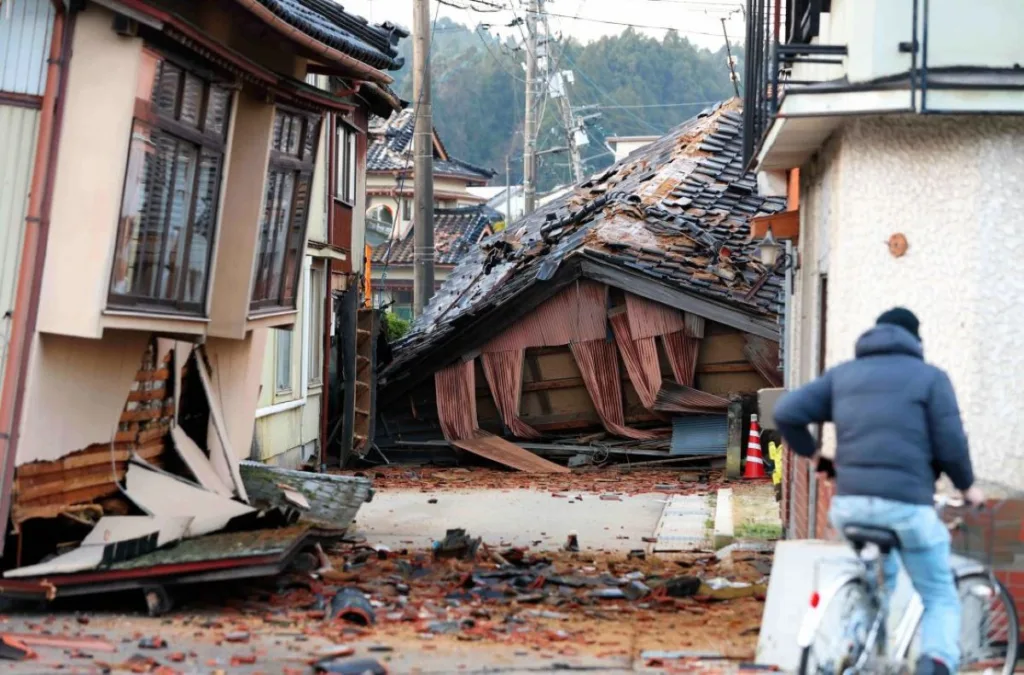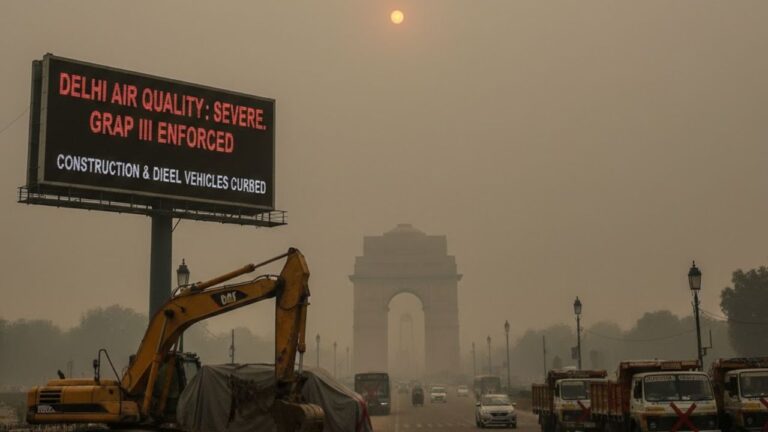
Japan Earthquake Update: Death Toll Hits 100, UN Mobilizes USD 100,000 Aid
Japan Earthquake Update: The death toll from a series of deadly earthquakes that slammed Japan on January 1 has grown to 100, with the search for survivors continuing unabated. The earthquakes, including a powerful 7.5 magnitude tremor, rocked the Noto Peninsula in the central prefecture of Ishikawa, causing widespread destruction and triggering tsunami alerts extending to eastern Russia.
As of Saturday, 98 fatalities had been confirmed, but tragically, two additional deaths were reported in Anamizu, bringing the toll to 100. The city of Wajima accounted for 59 of the casualties, Suzu reported 23, and the remaining lives were lost in five neighboring towns. According to Ishikawa officials, over 500 people have been injured, with at least 27 in critical condition.
The search and rescue efforts have been hampered by aftershocks, complicating the task of extracting survivors from the rubble. Thousands of rescuers are working tirelessly to free those still trapped under collapsed buildings, with the ordeal entering its fifth day.
In terms of infrastructure, approximately 23,800 households are without electricity, and more than 66,400 households lack a water supply in the Ishikawa region. The evacuation efforts have seen over 31,400 people relocated to 357 government shelters, aiming to provide safety and basic necessities.

Japan Earthquake: International Support
International support has begun to flow in, with the United Nations announcing a $100,000 aid package on Friday. The aid includes essential supplies such as blankets, water, and medical assistance, with a promise of further assistance if needed.
Prime Minister Narendra Modi expressed his condolences to Japanese counterpart Fumio Kishida, stating, “I express my deepest condolence to the bereaved families of those who lost their lives. We stand in solidarity with Japan and its people affected by the disaster. As a special strategic and global partner, India values its relationship with Japan and is ready to extend all possible assistance at this hour.”
On the ground, Kishida confirmed the opening of a sea route for aid delivery, allowing larger trucks to reach remote areas in need. Japan, despite experiencing frequent earthquakes, has stringent building codes in place. However, the nation still grapples with the haunting memory of the massive 9.0 magnitude undersea earthquake in 2011, which triggered a devastating tsunami, claiming around 18,500 lives.




